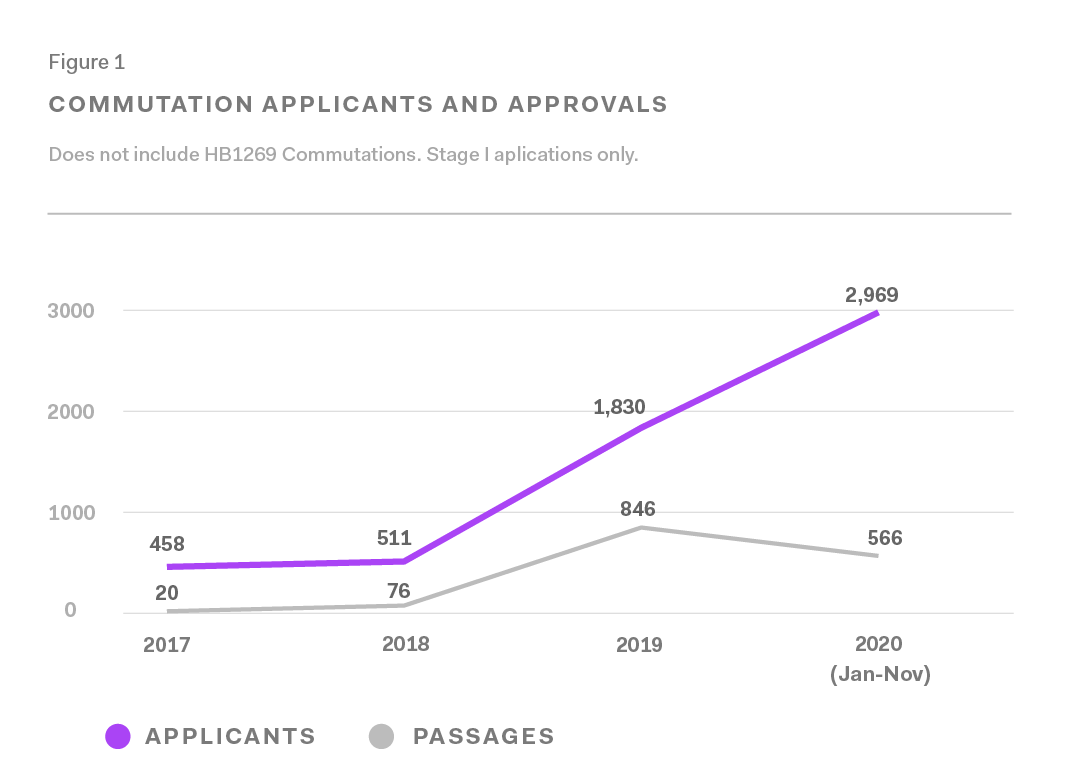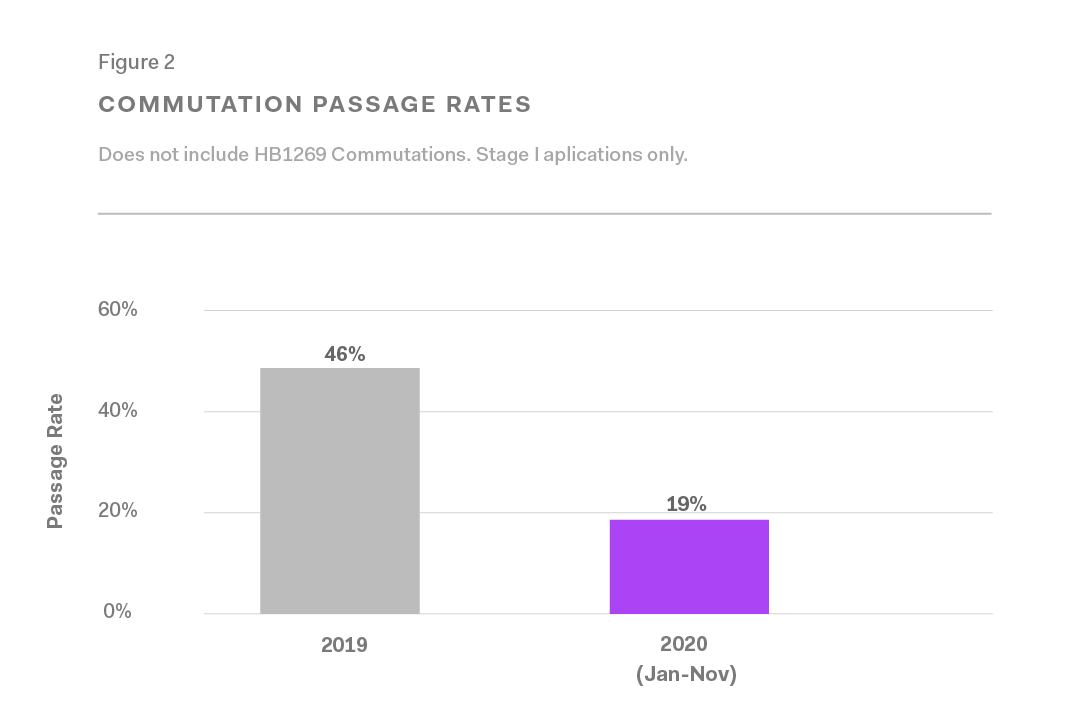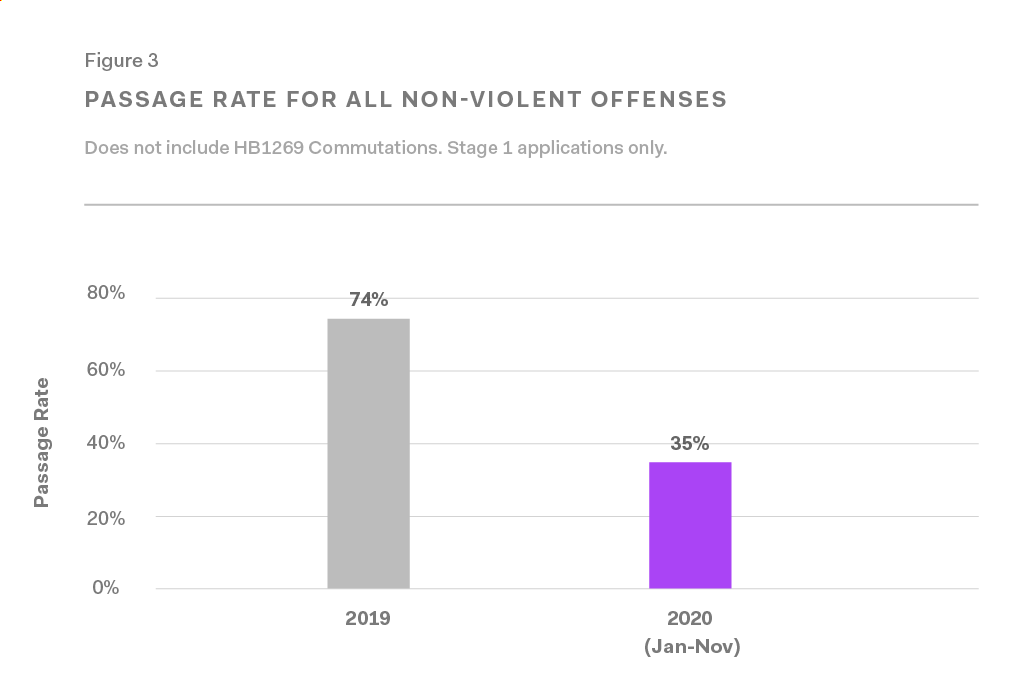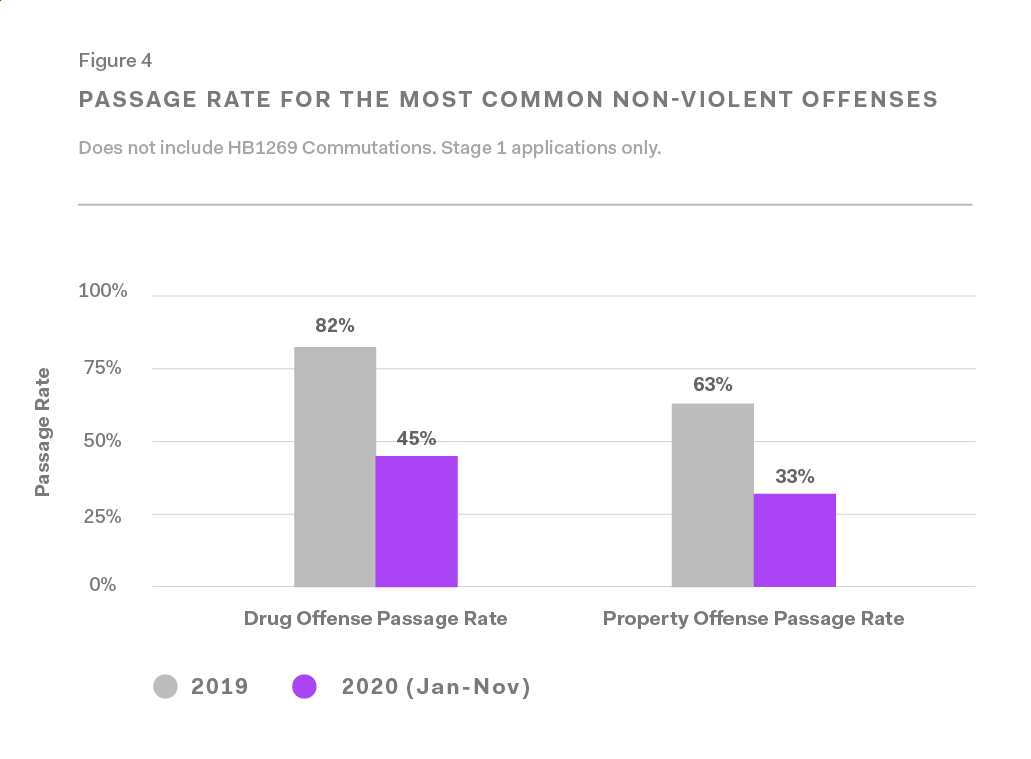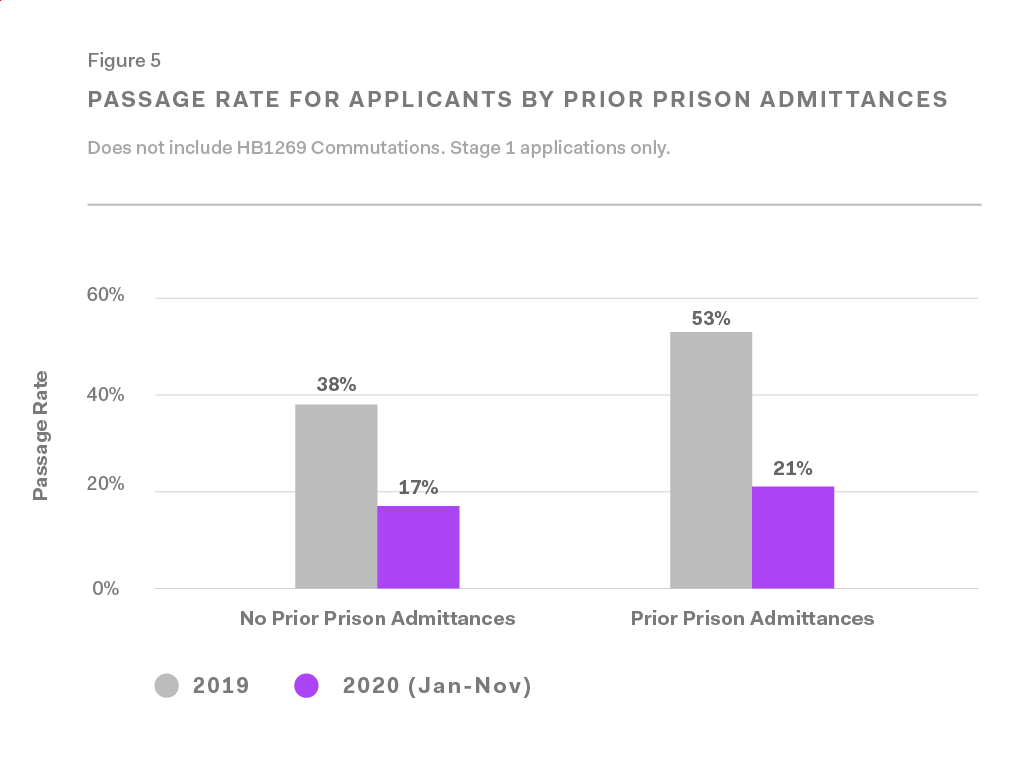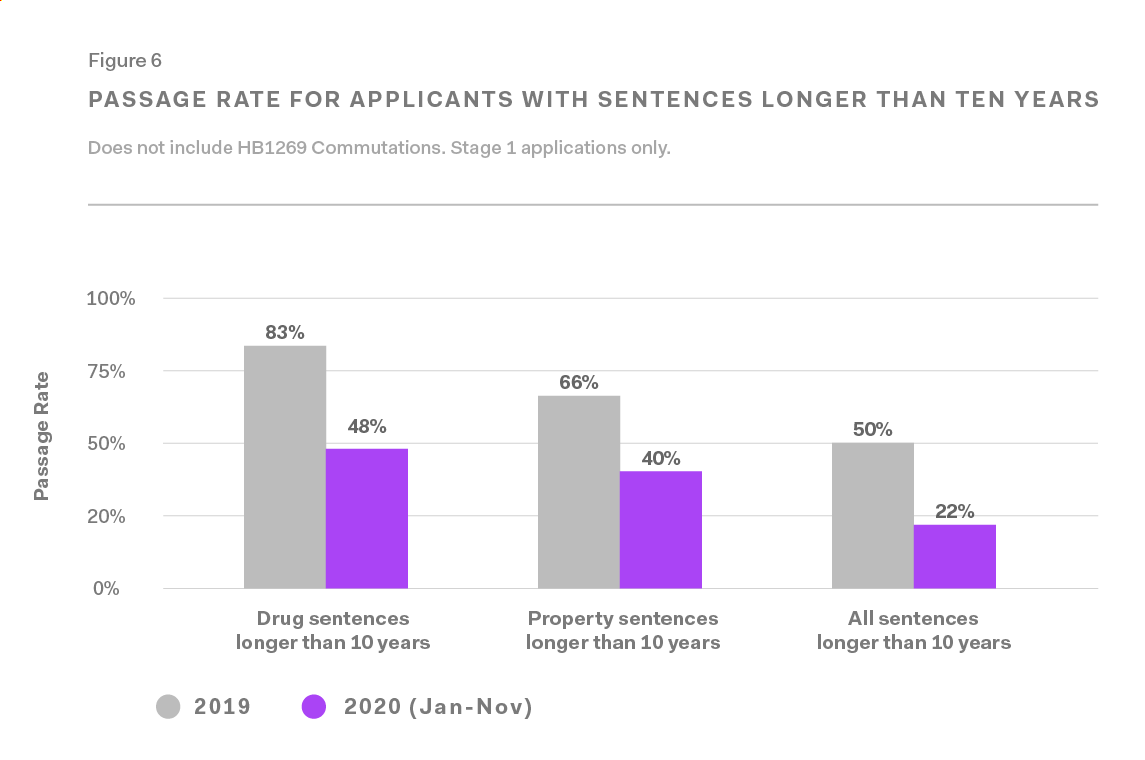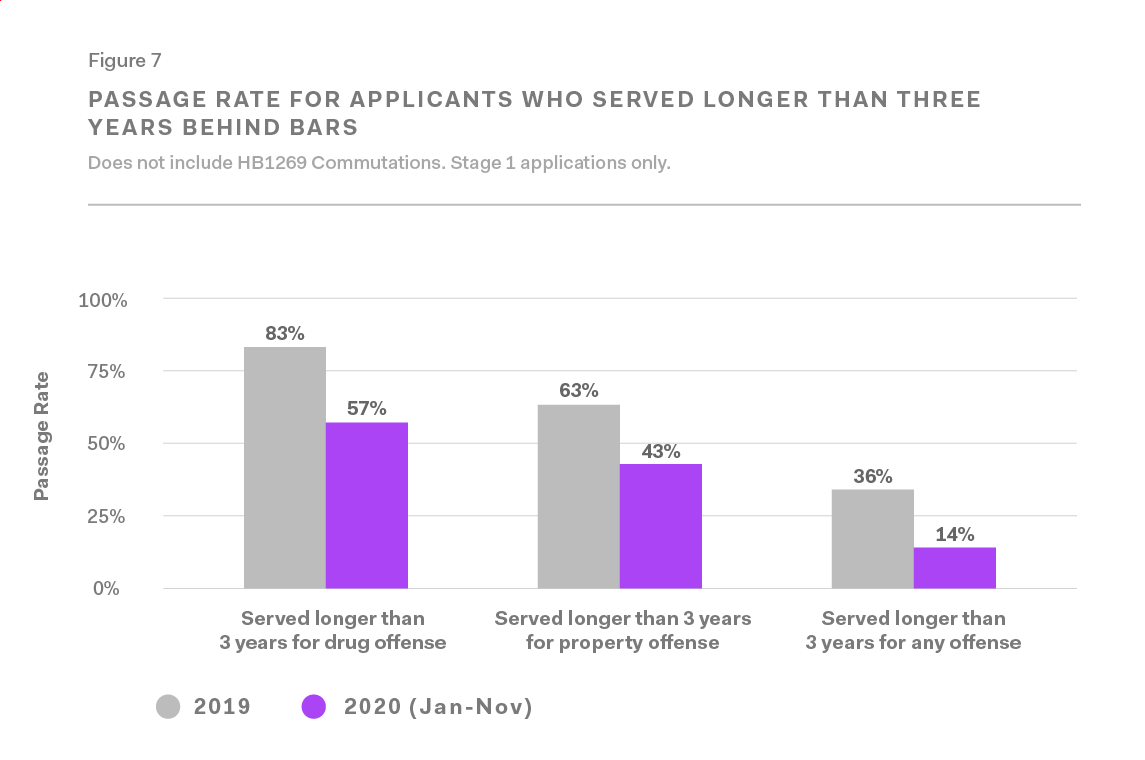“...the PPB approved 33% fewer Stage I commutation applications compared to 2019, despite considering over 1,000 more applications.”
Background
Prior to 2019, Oklahoma’s Pardon and Parole Board (PPB) rarely granted commutation applications for excessive sentences. In 2018, just 511 people applied for commutation and only 76 (15%) received approval from the Board. The year before, only 20 out of 458 (4%) applications were approved.
In 2019, with new Board members appointed by Governor Stitt, the PPB heard and approved more commutation applications than ever before. The PPB processed 1,830 commutation applications, 846 (46%) of which passed Stage I1 (excluding retroactive House Bill 1269 cases).2 This expanded use of clemency contributed to a reduction in Oklahoma’s overcrowded prisons from 112% capacity at the beginning of 2019 to 106% capacity at the end of the year.3 With one of the highest imprisonment rates in the nation, however, Oklahoma still had a long way to go.
Even as the COVID-19 pandemic put people in Oklahoma’s prisons at risk, progress slowed significantly in 2020. The PPB dramatically curbed commutation approvals over the past year by reducing the number and rate at which reviewed applications were moved forward. The PPB also lowered its monthly commutation docket in September.4 As COVID-19 continues to spread in Oklahoma’s prisons, the PPB’s slowdown is cause for serious concern.


